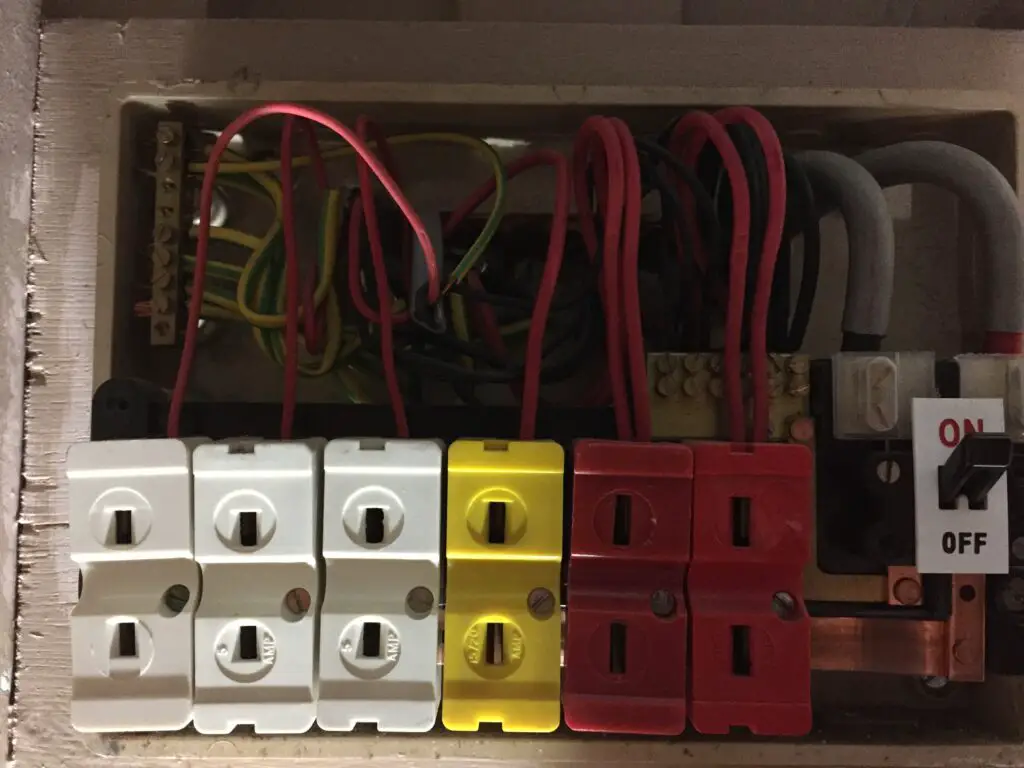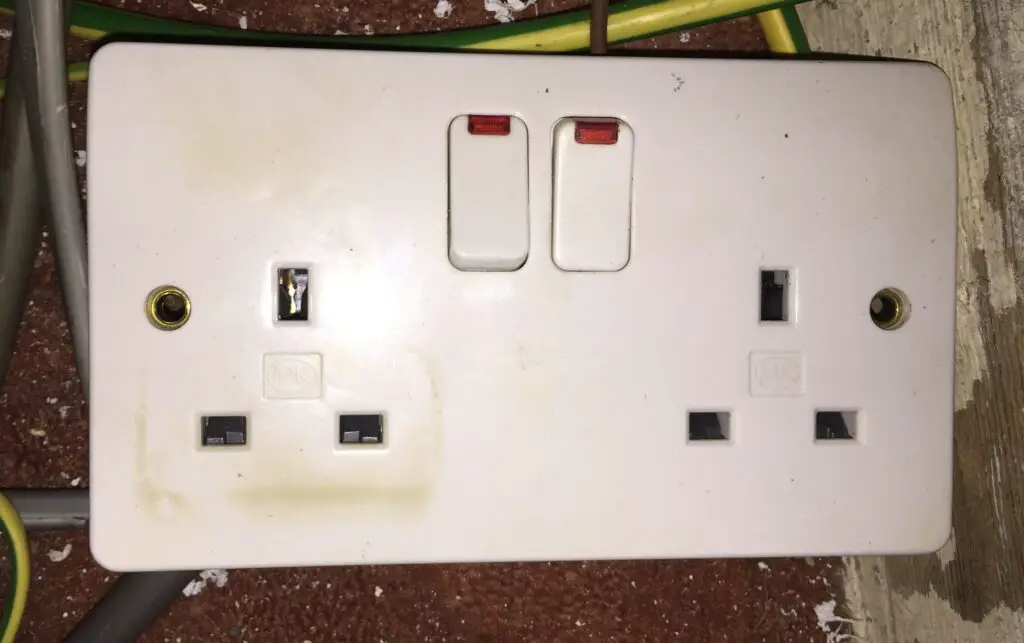A family member is in the middle of a pretty stressful house-buying process. The chain is long and just when it seems like things are moving forward, in comes another spanner into the works to grind the whole process to a stop again. The latest issue to be thrown up is that the prospective home buyer would like the electrics to be tested.
This is where I come in as I was the recipient of the phone call asking to pick my brains about the process. While I know very little about the modern home buying process (except that it looks pretty stressful from where I’m sitting) as an electrician that has carried out hundreds of electrical safety checks over the years, I could offer some advice on the pros and cons of the different options. If you find yourself in a similar position, I hope this post can help and feel free to share it with your friends in similar positions!

The Buyer Wants Electrics Tested Before Purchasing House
Many homebuyers like to have the electrical installation tested before buying a house as the report will highlight any non-compliance issues in line with the current regulations. Unfortunately, who pays for the EICR and any potential repairs is up for debate.
If the house buyer wants the electrics tested. Option one is to allow the buyer to organise an electrician and pay for the electrical safety inspection. The second option is for the seller to organise and pay for the electrics to be tested themselves and then provided this report to the buyer.
From my point of view as an electrician carrying out these safety checks, both options have pros and cons that need weighing up.
Whilst I am not an expert on legal matters regarding buying and selling houses (by that I mean I have to trust solicitors and estate agents like everyone else!) according to property site Habito, there is no legal requirement to have the electrics tested in a house before buying or selling. This means that as the seller there is always the option to simply refuse to let the house electrics be tested.
I guess this hard-line move depends a lot on the strength of the property market at the time. In my home town of Bristol, it seems like houses fly off the market so fast that the seller is definitely in the driving seat (for the moment at least). As mentioned earlier, assuming the seller doesn’t want to take this hard-line approach, there are two real options available and below is a summary of the pros and cons of each.
Advantages of Buyers Paying To Have Electrics Tested
The most obvious advantage is that the seller has none of the hassle of finding an electrician and that they don’t have to pick up the bill for the work afterwards. It depends on the size of the property and the number of circuits but as a rough guide around £200 will get an electrical safety check carried out on your home; so not being the one to pay is a significant saving!
Agreeing to them paying to have the work done could be the difference between the sale going through and not. Some mortgage lenders ask to have the electrics tested before agreeing to release the mortgage funds. If the buyer isn’t allowed to have the electrics tested the seller could be stopping the buyer from getting the mortgage. Putting a buyer between the demands of the lender and the wants of the seller is like being between two immovable boulders and the whole sale could easily collapse.
Cons of Buyers Paying To Have Electrics Tested
One of the biggest cons I can see is that the homeowner would have no right to see the actual safety report that is produced. The safety check report is given to the person who paid for it. If the buyer pays they could then in theory say there are all sorts wrong with the electrics without having to actually prove it. The report could come back as a fail but fixing it could be easy and not cost much. Unscrupulous buyers may not share the information that the fix is cheap and easy.
If the buyer is able to see a copy of the report, they don’t make for the easiest reading without a qualified electrician running through what it all means. An EICR (safety check) is currently 6 pages long, full of terminology that, while not rocket science, needs some explanation. The seller may find they end up paying an electrician to advise them what it all means anyway.
Whilst not having to organise and find an electrician is great, the disadvantage is that this person will need access to all areas within your home. Although no damage should be caused during a safety check, if the buyer has picked the cheapest person possible, it is the seller that will have to put up with a less-than-professional electrician scurrying around their house. It could become a pain very quickly.
In theory, every electrician testing a house’s electrics will produce the same report. In reality, there is an element of the human factor. No two electricians are going to pick up on exactly the same things (barring the main stuff. I’m talking about the little advisories, the code 3s as they are known). Basically, I’m trying to say that an unscrupulous electrician acting on the buyer’s behalf may be especially harsh and find faults where they don’t really exist without a motive to find them. If that makes sense?

Pros of Seller Paying To Have Electrics Tested
The biggest pro in my opinion is the fact that the seller will have full control over the process within their own home. The seller will get to pick a local electrician they can trust and most importantly they will get to see a copy of the report and have the electrician explain it to them in simple terms. The report may even throw up some issues that as the buyer is still living in the home they would like to get fixed to keep themselves safe!
Having an electrical report to show to potential buyers from the outset could be a good tool for putting prospective buyers at ease and encouraging higher offers. The cost of the report could possibly be exceeded by the additional money buyers are willing to pay. In any market, buyers hate uncertainty and are willing to pay more for professional checks (I would pay more for a second-hand car with 12 months MOT than a cheaper one with only 1 month MOT remaining!)
There is a legal requirement for landlords to have the electricity within a home tested before letting it out to tenants. By being able to show potential buyers looking for buy-to-let properties a passed safety report (I’m not sure if a landlord can use the safety check provided when buying the house or if they have to get another one done so if you are a potential landlord do some research on this one!) Either way knowing they will not have to factor in the additional expense of lots of electrical repairs to achieve a pass is a big plus.
Cons of Seller Paying To Have Electrics Tested
The biggest con is obviously the additional unwanted expense to the seller. As mentioned the report itself costs around £200 without any repairs being carried out. If the safety check throws up lots of advisories then the buyer could find themself going down the route of paying to get lots of little bits fixed.
Inconvenience and time are the other cons I can see. A safety check usually takes around 4 hours to complete and the homeowner needs to be home and allow access to all the areas (including attic, bedrooms, outhouses etc) In a hectic world this need to take a day of work at short notice to accommodate can be an additional pain in the home selling/buying process.
Final Thoughts
I’ve been through the home buying process once, so I symphysis with everyone going through the process. If the buyer wants electrics tested before completing the purchase this is probably another throw your hands in the air moment for the seller.
In my opinion, I would seriously consider paying for the electrical safety checks in advance of the house going on the market. In the grand scheme of house selling the cost is not huge and is another piece of evidence in the armoury that the house has been well loved, in tip-top shape and the buyer should dig a little deeper into their pockets in order to secure it!
As mentioned at the start, I am in no way legally trained and this post is just my opinion. Consult professional legal advice at all times during any home buying and selling process
